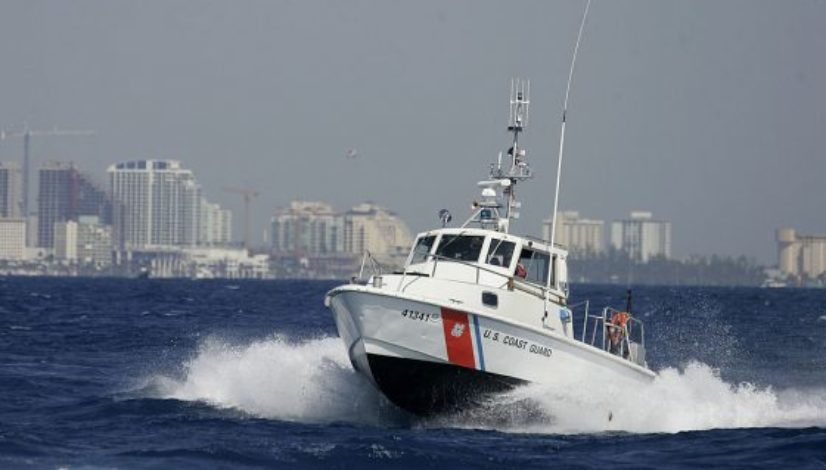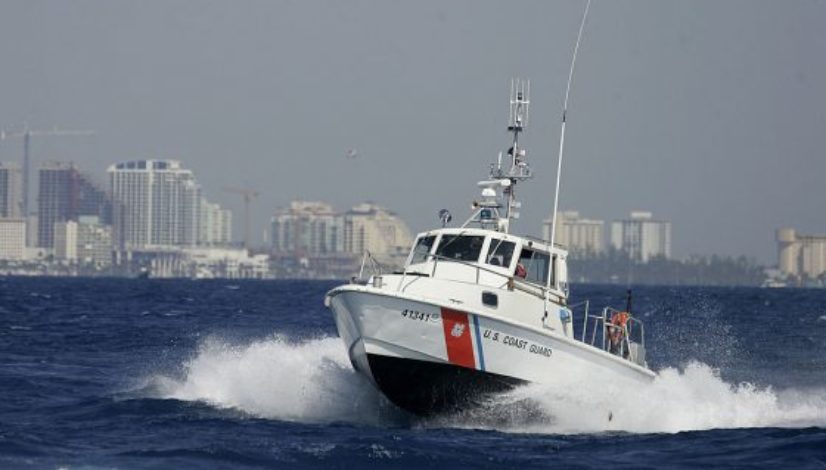Coast Guard touts record drug seizures to establish itself as relevant, proactive in border wall era

Published: Sep 20, 2017, 3:24 pm • Updated: Sep 20, 2017, 3:24 pm
By Dan Lamothe, The Washington Post
The Coast Guard has set a record for cocaine seizures at sea for the second consecutive year, an effort that admirals are linking to border security as they look to build new ships while President Trump presses for a border wall.
The service will highlight the record Wednesday in San Diego alongside Attorney General Jeff Sessions as it offloads 50,550 pounds of cocaine and a smaller amount of heroin from the USCGC Stratton, a 418-foot cutter that is one of several vessels involved in recent operations. The drugs were confiscated by four Coast Guard cutters and the Navy destroyer USS Chaffee in the eastern Pacific Ocean, a longtime trafficking route from South and Central America.
Overall, the Coast Guard has seized more than 455,000 pounds of cocaine through Sept. 11 in the fiscal year that will end Oct. 1, breaking the record of 443,790 pounds set last year. About 85 percent of that comes from the eastern Pacific, service officials said. The Coast Guard also has detained at least 681 suspected smugglers in those operations, up from 585 last year and 503 in 2015.
Adm. Paul F. Zukunft, the Coast Guard commandant, said in an interview that massive offloads of drugs are starting to become “just another day in the service.” The amount of cocaine on the high seas has exploded since the Colombian government eased the aerial eradication of coca plants through spraying in 2016 as part of a peace deal with the Revolutionary Armed Forces of Colombia (FARC), a rebel group it had warred with it for 52 years.
“We have seen a dramatic increase in cultivation and production,” Zukunft said. “This is almost exclusively coming out of Colombia. They’ll either ship it out of Colombia, or just to the south, Ecuador, and then land it in Central America. About 40 percent of these loads are being landed in Mexico, but it’s ultimate destination is the United States.”
Cocaine interdiction is mostly a separate, but related mission than efforts to stop the U.S. opium epidemic. While most cocaine shipments spend at least some time at sea after originating in South America, heroin is heavily grown in Mexico, and smuggled into the United States through other means.
Related stories
- Fact check: Will a wall “stop much of the drugs from pouring into this country” as Trump claims?
- Another yacht bust: 1,500 pounds of marijuana seized near Greece
- Leader of California marijuana smuggling ring in custody after 30 years on the lam
- Mexico reiterates they will not pay for Trump’s wall “under any circumstances”
- 100 pound package of marijuana launched over Mexico border fence
The Coast Guard has pressed for additional funding as it looks to gradually build eight large national security cutters for service in open ocean, 25 offshore patrol cutters for intermediate operations and 58 fast-response cutters for missions near shore to replace an aging fleet of about 90 ships, according to a Congressional Research Service report released in August.
The service got a wakeup call in March when a draft version of Trump’s budget called for the service to take a $1.3 billion budget cut to $7.8 billion in 2018 to help fund the president’s border wall. The sea service eventually secured level-funded after Republicans and Democrats alike protested the choice, but Zukunft acknowledged that he has become more vocal in advocating for the Coast Guard as a part of border security in part because of that experience.
The service gathers information to stop drug shipments through a variety of means, including tips from the Justice Department and surveillance flights flown by the U.S. military and Department of Homeland Security. In all cases, the goal is to stop massive shipments of drugs long before they reach the U.S. border, rather than at it.
“I look at a border wall as a goal-line defense, if you will. But, what’s your offensive strategy?” Zukunft said, alluding to interdiction efforts. “And this, to us, is a very offensive strategy. The fact is that we have awareness of these drug movements and actually are attacking because we know where they’re at, and just don’t have enough attackers. The border really is your last-stop measure.”
The advocacy comes after President Donald Trump visited on two occasions recently with the Coast Guard after its hurricane relief efforts, first during Harvey in Texas and then in Florida after Irma. It also comes after retired Marine Gen. John F. Kelly, a longtime proponent of drug interdiction, shifted July 28 from serving as Trump’s homeland security secretary to become the White House chief of staff.
“If you talk about branding?” Trump said, marveling this month at rescue efforts in bad weather. “No brand has improved more than the United States Coast Guard.”
But the service is still short-handed at sea, not only in terms of the number of ships it has but is missing from them. Vice Adm. Fred Midgette, the commander of Coast Guard forces in the Pacific, said that each of the service’s vessels in the region deploys with a team that has law-enforcement authority and a fast-pursuit boat, but there isn’t always enough armed helicopters available to deploy with one.
“If you did the math and you gave me about five times as many cutters as we have out here, we’d be doing pretty well,” said Midgette, who oversees 10 now, including some that deploy off the coast of Alaska. “I can’t send them all to the drug war.”
Capt. Craig Wieschhorster, who commands the Stratton, said in a phone interview after returning to port in San Diego on Tuesday that his vessel has about 130 crew members, and deployed most recently for 45 days with small boats, helicopters and unmanned surveillance aircraft. Videos released by the service show helicopters roaring in on smugglers in fast boats, and Coast Guardsmen boarding their vessels.
“Our biggest frustration is the expanse of the operating area,” Wieschhorster said of the eastern Pacific. “It’s the tyranny of distance. It’s a big operating area out there, and we’re literally running from case to case, and taking these guys down. The more assets we throw at this problem, the more effective we can be.”
Rep. Duncan D. Hunter, R.-Calif., an early supporter of Trump who nonetheless organized lawmakers this year against the proposed Coast Guard budget cut, said that he believes Trump was not aware of its emphasis on drug interdiction, and “that’s why the whole thing got reversed when it was publicized.” Hunter will be pressing to get the service additional funding in future budgets, he said.
Zukunft and Midgette both acknowledged that there are limits to what the service can do to stop drugs, citing the demand in the United States. Zukunft said it shouldn’t ever be called a “war on drugs,” anymore but instead a campaign.
“A campaign has numerous lines of effort, and one of those is that we have a behavioral health problem in the United States,” he said. “We are the number-one consuming country in the world, and that’s something I am not proud of as a U.S. citizen.”
For now, Zukunft argued, the Coast Guard provides a “tremendous return on investment” in dealing with the problem.
Topics: budget, cocaine, Jeff Sessions, Mexico-U.S. border, smuggling, U.S. Coast Guard, war on drugs




